Name Product: Passions: Philosophy and the Intelligence of Emotions
Size: 7.7 GB
Author: Robert C. Solomon Ph.D
Website: _http://www.thegreatcourses.com/courses/passions-philosophy-and-the-intelligence-of-emotions.html
VIDEOS + AUDIOBOOK + PDF GUIDEBOOK
Fear, joy, grief, love, hate, pride, shame. We all have emotions, and we recognize emotions in others. But do we really understand what emotions are and what they signify? It is remarkable how often we are wrong about our own emotions and misread the emotions of others. We also deceive ourselves about their meaning. The more we puzzle over the nature of emotions, the deeper the mystery becomes. It is a mystery that is by no means solved, but one that repays careful, philosophical analysis.
Far from being routine, emotions are “the key to the meaning of life,” says distinguished philosopher and author Robert C. Solomon, who in these 24 lectures takes you on a tour of his more than three-decade-long intellectual struggle to reach an understanding of these complex phenomena. Some of his conclusions are surprising and very much against the current of common sense.
Professor Solomon’s lectures unfold as a rich dialogue with other philosophers, including Plato, Aristotle, the Stoics, Descartes, Adam Smith, Nietzsche, William James, Freud, Heidegger, and Sartre. He also relates these views to contemporary work in the cognitive sciences on emotions, notably research by Antonio Damasio, Joseph LeDoux, and Paul Ekman. And he discusses the portrayal of emotions in writers and artists including Homer, Shakespeare, Melville, Dostoevsky, and Picasso.
Emotions Have Intelligence
By probing the ideas of these and other thinkers and presenting his own views, Professor Solomon will lead you to a remarkable conclusion: Emotions have intelligence and provide personal strategies that are vitally important to our everyday lives of perceiving, evaluating, appraising, understanding, and acting in the world.
This idea runs counter to the widespread view that draws a sharp distinction between the emotional and the rational and views the emotions as inferior, disruptive, primitive, and even bestial forces. For Professor Solomon, many emotions are distinctively human and they are far more complicated than mere “feelings.” They are rational judgments—sophisticated strategies for survival.
In exploring the multifaceted nature of emotions you will address questions such as:
How do we distinguish emotions from feelings, such as heartache?
What is the meaning of our emotions, and how do they serve to enrich and guide our lives?
Is there a determinable number of basic emotions that serve as building blocks for the range of emotions we experience?
Is an emotion such as jealousy a genetic trait shared by all humans—or is it something learned?
The Japanese have an emotion named amae, but it seems unknown to Westerners. To what extent do language and culture determine emotional experience?
Are emotions subconscious products of the mind, or are they under conscious control?
Philosopher at Work
One of the fascinating features of this course is that you get to witness a philosopher wrestling with the ideas of his predecessors—accepting, rejecting, refining their contributions, and modifying some of his own earlier views—in a demonstration of the intellectual honesty required to make progress in tackling a profound philosophical problem. He also ranges beyond philosophy to draw insights from psychology, sociology, neurology, history, and literature.
A multi-award-winning teacher at The University of Texas at Austin, Professor Solomon has written or edited more than 45 books, including The Passions, Not Passion’s Slave, In Defense of Sentimentality, and About Love, as well as works on Existentialism, Nietzsche, Hegel, business ethics, and introductory philosophy.
In a review of Not Passion’s Slave, he was singled out for being “at the heart of a revival of philosophical interest in the emotions” by The Times Literary Supplement, which noted his “energetic and provocative contributions to the field.”
Professor Solomon had such a profound effect on one of his students at UT, the future film director Richard Linklater (best known for Before Sunrise and Before Sunset), that Linklater included a memorable extract of Professor Solomon lecturing on Existentialism in the acclaimed feature film Waking Life.
Professor Solomon has conducted three other highly popular Teaching Company courses: No Excuses: Existentialism and the Meaning of Life; Will to Power: The Philosophy of Friedrich Nietzsche (with Kathleen Higgins); and Great Minds of the Western Intellectual Tradition (selected lectures).
Wondrous Troublemakers
“I want to invite you to look at your own emotions as if they are something wondrous, mysterious, and exotic, something you’ve always taken for granted—even when they’ve gotten you in trouble,” says Professor Solomon at the outset of this course, which he divides into three sections:
Passions, Love, and Violence: The Drama of the Emotions (Lectures 2–9). The course begins with eight lectures on specific emotions (anger, fear, love, compassion, pride, envy, vengeance, and grief) with insights into the complexity, importance, and roles emotions play in our lives.
Out of Touch with Our Feelings: Misunderstanding the Emotions (Lectures 10–17). These eight lectures examine how we misinterpret and fail to take responsibility for our emotions. For example, the innocent-sounding claim that emotions are feelings represents a fundamental misunderstanding of what emotions are about. Other misconceptions are the seemingly innocent assertion that emotions are “in the mind” and the idea that we are the victims or slaves of our passions.
How Our Passions Enrich Our Lives (Lectures 18–24). The concluding section takes a positive look at the richness and value of our emotions, probing what it is about them that make life worth living. Professor Solomon talks about laughter, music, and the roles that emotions play in different cultures.
Throughout the course, Professor Solomon returns again and again to his thesis that emotions have intelligence, an idea that has roots in Western philosophy tracing back to Aristotle. The notion of “emotional intelligence” gained notoriety through a 1990s bestseller by psychologist Daniel Goleman, but while Goleman and other popular writers on the subject primarily discuss learning how to control emotions, Professor Solomon digs deeper to reach the core of how emotions themselves contain intelligence—indeed many kinds of intelligence—and to explore the complex emotional repertoire that makes us uniquely human.
As you listen to these lectures, prepare to think: Think about your own emotions; think about what you observe in others; think about the enormous body of research and conjecture on this fascinating topic as Professor Solomon takes you on a challenging and stimulating journey.
“Emotions are our doing,” he says. “An emotion is not just a product of evolution, but a product of cultivation and, sometimes, personal choice. If you look at your emotions and say, ‘I will take responsibility for this because it is my doing,’ sometimes you will be wrong; but in general, you will suddenly find that you’ve taken ownership of your life in a way that you hadn’t before. And it seems to me that is a very important philosophical lesson.”
Lectures:
01. Emotions as Engagements with the World
02. The Wrath of Achilles
03. It’s Good to Be Afraid
04. Lessons of Love—Plato’s Symposium
05. We Are Not Alone—Compassion and Empathy
06. Noble? or Deadly Sin? Pride and Shame
07. Nasty—Iago’s Envy, Othello’s Jealousy
08. Nastier—Resentment and Vengeance
09. A Death in the Family—The Logic of Grief
10. James and the Bear—Emotions and Feelings
11. Freud’s Catharsis—the Hydraulic Model
12. Are Emotions “in” the Mind?
13. How Emotions Are Intelligent
14. Emotions as Judgments
15. Beyond Boohoo and Hooray
16. Emotions Are Rational
17. Emotions and Responsibility
18. Emotions in Ethics
19. Emotions and the Self
20. What Is Emotional Experience?
21. Emotions across Cultures—Universals
22. Emotions across Cultures—Differences
23. Laughter and Music
24. Happiness and Spirituality
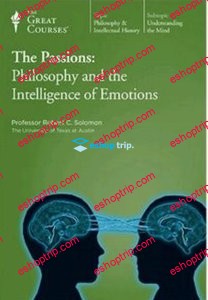



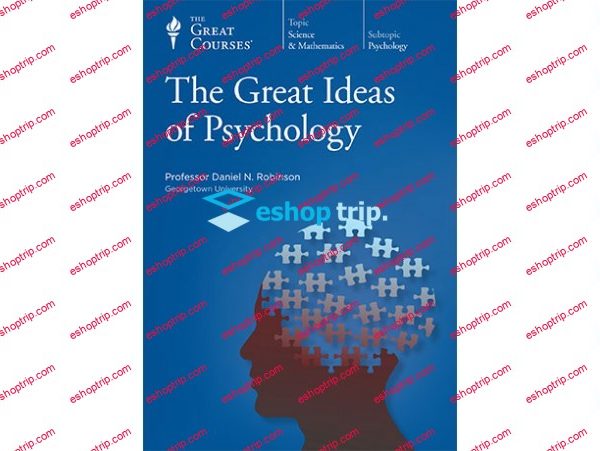
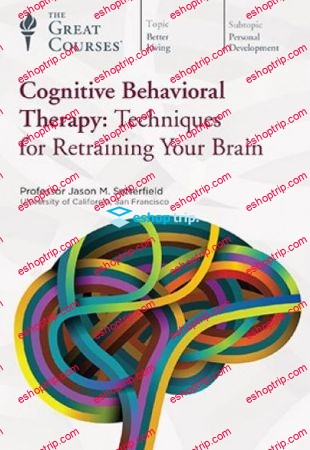
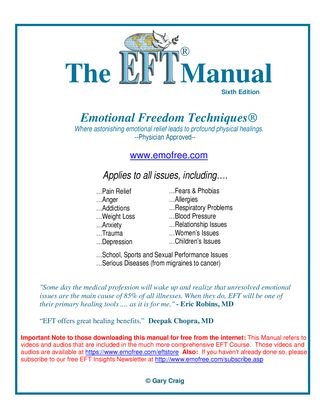
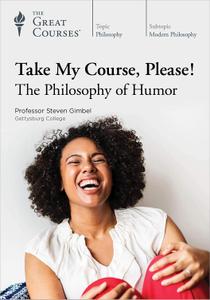

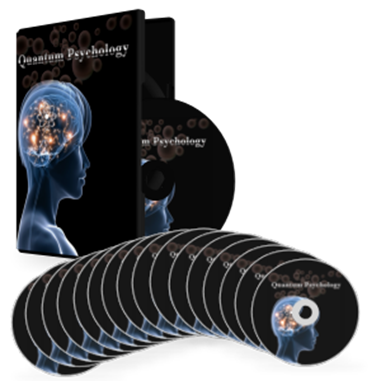

Reviews
There are no reviews yet.